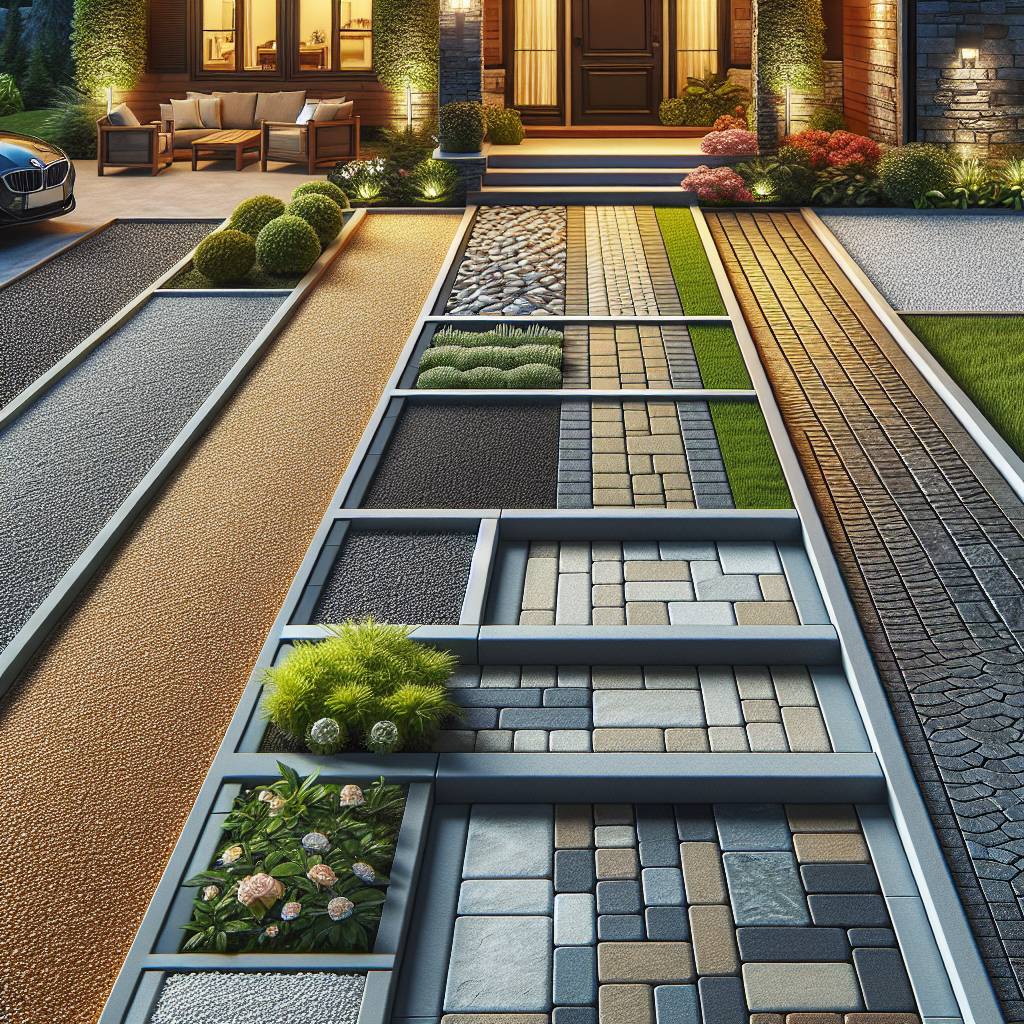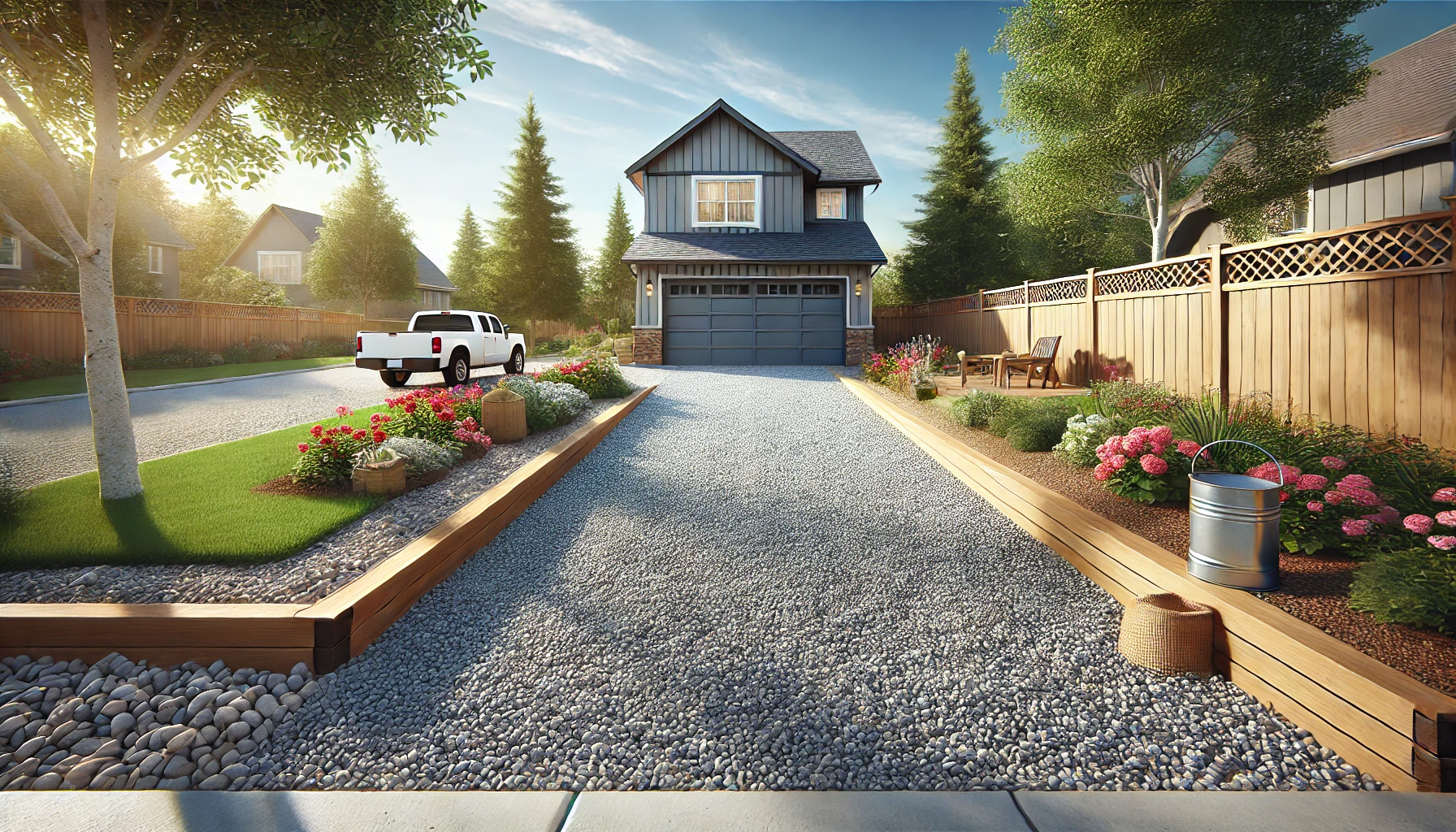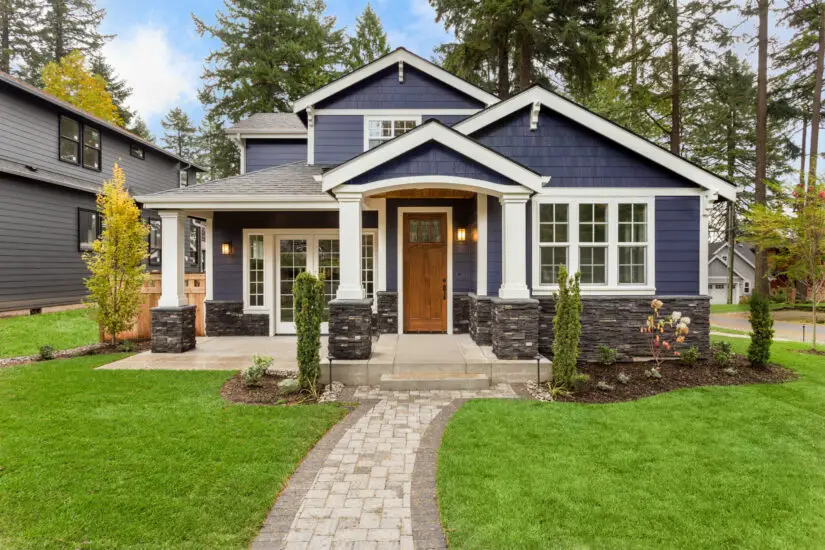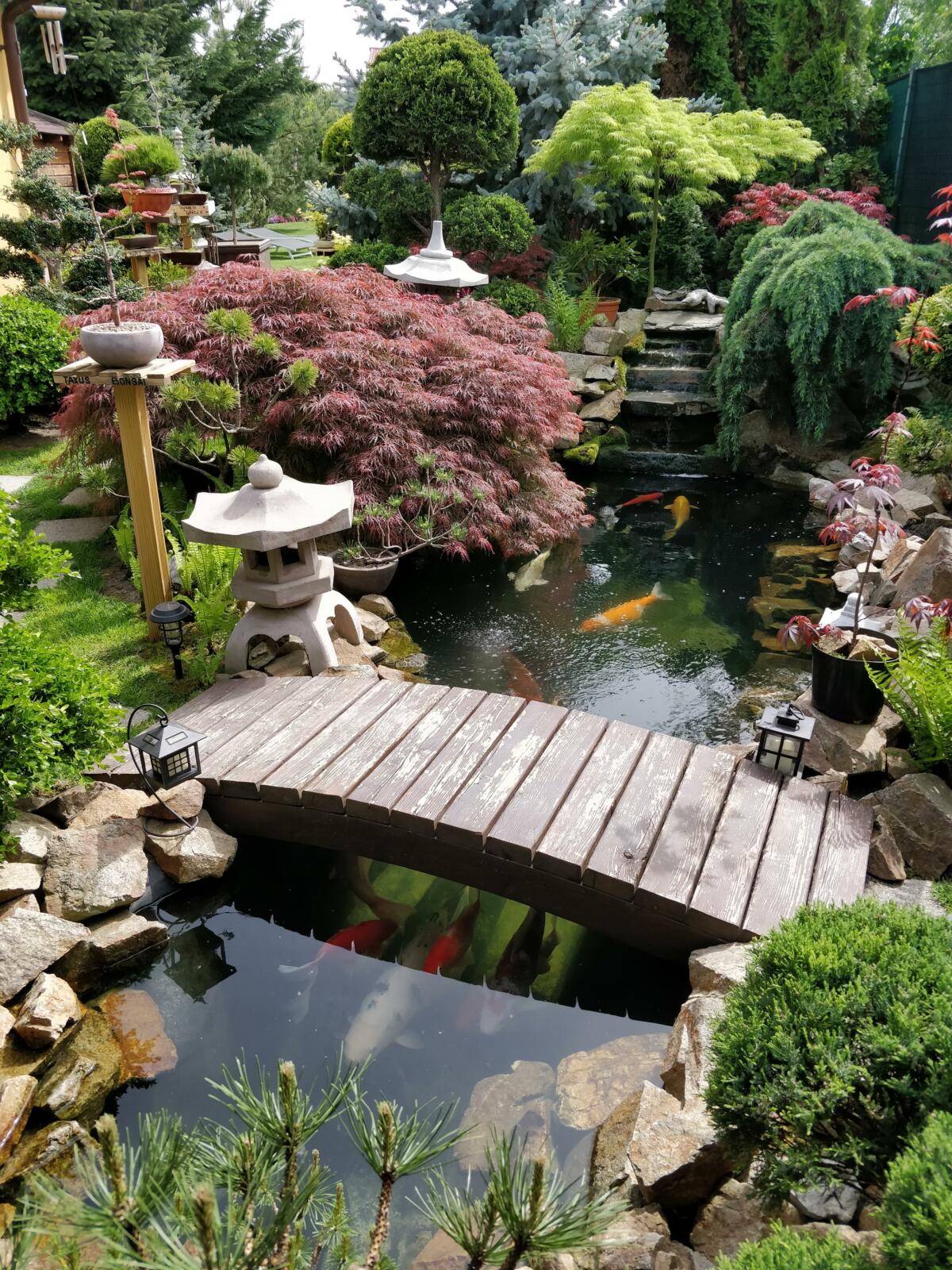Did you know that the material you choose for your driveway can significantly impact its durability and longevity? From concrete to asphalt, gravel, and more, selecting the best option is crucial for a lasting and resilient driveway. Each material comes with its own set of benefits and considerations, making the decision a critical one for homeowners looking to invest in their property’s curb appeal and functionality, with different driveway options. In this guide, we will explore the pros and cons of various driveway materials, helping you make an informed choice that suits your needs and budget. Say goodbye to endless repairs and replacements – discover the best materials for a durable driveway today.
Key Takeaways
- Choose driveway material based on durability, maintenance, and cost.
- Gravel driveways offer affordability but require regular maintenance.
- Asphalt driveways are durable and easy to repair but may need resealing.
- Concrete driveways are long-lasting with various decorative options.
- Consider stamped concrete for a customized look with added durability.
- Pavers provide a versatile and aesthetically pleasing driveway option.
Understanding Driveway Materials
Durability and Cost
Gravel driveways are affordable but less durable than asphalt, concrete, or pavers. Asphalt driveways offer moderate durability at a reasonable cost. Concrete driveways are highly durable but can be more expensive upfront. Pavers driveways are costly but extremely durable.
When it comes to cost, gravel is the most budget-friendly option, followed by asphalt and concrete. Pavers are the most expensive choice due to their intricate installation process.
In terms of long-term cost-effectiveness, concrete and pavers stand out for their durability, requiring fewer repairs over time. While gravel is cheap initially, its maintenance costs for driveway material can add up over the years.
Style Considerations
Stamped and decorative concrete driveways offer a stylish alternative to traditional concrete surfaces. They come in various patterns and colors, adding a touch of elegance to your property.
Pavers driveways provide versatile design options, allowing you to create unique patterns and arrangements. From classic to modern styles, pavers offer a wide range of customization possibilities.
Different driveway materials can enhance the overall aesthetics of your property. For example, a well-designed pavers driveway can significantly boost curb appeal, while decorative concrete adds sophistication to the exterior.
Maintenance Needs
Gravel driveways require regular regrading and replenishing to maintain their appearance and functionality. They are prone to erosion and displacement over time.
Asphalt driveways need periodic sealing and crack repairs to prevent water damage and maintain their smooth surface. Proper maintenance can extend the lifespan of an asphalt driveway.
Concrete driveways are durable but may develop cracks over time. Sealing them every few years helps prevent damage from freezing temperatures and moisture penetration.
To effectively maintain your driveway, regularly remove debris, fill in cracks promptly, and address any drainage issues. Proper maintenance ensures the longevity of your driveway.
Exploring Gravel Driveways
Pros and Cons
Gravel driveways are affordable and easy to install, making them a popular choice for many homeowners. They provide excellent drainage and require minimal maintenance. However, gravel driveways can be prone to erosion, leading to the need for periodic replenishment. They may not offer the same level of durability as concrete or asphalt driveways.
- Pros:
- Affordable installation costs
- Good drainage properties
- Easy maintenance
- Cons:
- Susceptible to erosion
- Lower durability compared to concrete or asphalt
When comparing gravel driveways with asphalt, concrete, and pavers, it’s essential to consider the trade-offs between cost-effectiveness and longevity. While gravel driveways are budget-friendly and easy to maintain, they may not withstand heavy traffic or harsh weather conditions as well as other materials.
Cost Overview
Gravel driveways typically fall on the lower end of the cost spectrum for driveway materials. The initial installation cost for a gravel driveway is relatively inexpensive, making it an attractive option for budget-conscious homeowners. However, it’s important to factor in the long-term expenses associated with maintaining a gravel driveway, such as regular regrading and replenishing of gravel.
- Cost Range:
- Initial installation: $1.50 – $2.50 per square foot
- Long-term maintenance: Varies based on replenishment needs
In contrast, asphalt driveways offer a slightly higher upfront cost but require less maintenance over time. Concrete driveways are more expensive initially but are known for their durability and longevity. Pavers driveways sit at the higher end of the price range but provide a customizable and aesthetically pleasing option for homeowners.
Analyzing Asphalt Driveways
Benefits and Drawbacks
Asphalt driveways offer a smooth and sleek appearance, enhancing the curb appeal of a property. The durability of asphalt makes it resistant to cracks and potholes, ensuring longevity. Asphalt driveways are low-maintenance, requiring minimal upkeep over time.
On the other hand, gravel driveways, while cost-effective initially, tend to require frequent maintenance due to erosion and displacement of gravel. The lack of stability in gravel driveways can result in uneven surfaces, making them less ideal for heavy traffic areas or adverse weather conditions.
The choice between durable materials like concrete or pavers compared to less resilient options such as gravel driveways can significantly impact the overall value of a property. Properties with well-maintained asphalt driveways often command higher resale values due to their aesthetic appeal and long-term durability.
Pricing Insights
When considering driveway materials, pricing factors play a crucial role in determining the overall cost of the project. The size of the driveway area, material quality, and installation complexity all contribute to the final pricing.
High-quality asphalt driveways may come at a higher initial cost due to the premium materials used, but they offer long-term savings through reduced maintenance expenses. Gravel driveways, on the other hand, may seem more affordable upfront but can incur additional costs for regular upkeep.
For budgeting purposes, it is essential to factor in not just the initial material costs but also ongoing maintenance expenses. Concrete and pavers may have higher upfront costs than gravel but can provide long-term savings by requiring less maintenance over time.
Investigating Concrete Driveways
Advantages and Disadvantages
Concrete driveways offer durability and low maintenance, making them a popular choice among homeowners. They are resistant to weather conditions and can last for decades.
On the downside, high initial costs are a significant drawback of concrete driveways, especially for options like stamped and decorative concrete. These decorative finishes can significantly increase the overall expenses.
Comparing the advantages of durability and low maintenance against the disadvantages of high upfront costs is crucial when choosing between different materials for your driveway.
- Pros:
- Durable and long-lasting
- Low maintenance requirements
- Resistant to weather conditions
- Cons:
- High initial costs
- Additional expenses for decorative finishes
- Prone to cracking over time if not properly maintained
Cost Analysis
When considering the cost of installing and maintaining concrete driveways, it’s essential to factor in materials, labor, and maintenance expenses. The average cost per square foot for a concrete driveway ranges from $4 to $15.
Breaking down the costs involved in each phase of construction, such as excavation, pouring, finishing, and sealing, provides a comprehensive view of the financial investment required.
Evaluating the cost-effectiveness of concrete driveways over their lifespan includes considering factors like repair and replacement costs. While initial expenses may be higher, the long-term durability can offset these costs.
- Cost Analysis Breakdown:
- Materials: Concrete mix, reinforcement materials
- Labor: Excavation, pouring, finishing crew
- Maintenance: Sealing, repairs, replacements
- Long-Term Cost Considerations:
- Repair costs over time
- Replacement expenses for damaged sections
- Return on investment in terms of longevity and durability
Stamped and Decorative Concrete
Unique Features
Stamped and decorative concrete offer versatility for homeowners, combining durability with aesthetic appeal. With a range of patterns and colors available, customization options are endless. This material is ideal for those seeking a unique and personalized driveway.
Concrete driveways stand out for their longevity, requiring minimal maintenance over the years. They provide a sturdy foundation for vehicles while adding value to your home. Homeowners can choose from various finishes, including exposed aggregate or smooth surfaces, depending on their preferences.
Innovative technologies such as stamped overlays allow for the replication of natural materials like stone or brick. These advancements in design techniques have revolutionized the way concrete driveways can enhance a property’s curb appeal. By incorporating these modern trends, homeowners can achieve a sophisticated look that complements their home’s architecture.
Expense Guide
When considering stamped and decorative concrete for your driveway, the cost typically ranges from $8 to $18 per square foot. While this may seem higher than traditional concrete, the added aesthetic value justifies the expense. Homeowners can also opt for more intricate designs, which may increase the overall cost but result in a stunning visual impact.
To manage costs effectively, it’s essential to obtain multiple quotes from reputable contractors. Comparing prices and services can help you find the best deal without compromising on quality. proper maintenance can extend the lifespan of your driveway, saving you money on repairs in the long run.
Cost-saving strategies include choosing simpler patterns or colors that require less labor during installation. By prioritizing durability over intricate designs, homeowners can achieve a beautiful driveway while staying within budget constraints.
Examining Pavers for Driveways
Pros and Cons
Pavers offer versatility as they come in various shapes, sizes, and colors, allowing for customized designs. They are also durable, with a long lifespan compared to other materials.
On the downside, pavers can be costly due to the individual units’ higher price and the labor-intensive installation process. They may require occasional maintenance like re-leveling over time.
Innovative Driveway Options
Turf and Brick
When considering alternative driveway materials, turf and brick stand out as eco-friendly and visually appealing options. Turf driveways, also known as grass driveways, blend seamlessly with the surrounding landscape, offering a unique aesthetic. On the other hand, brick driveways provide a classic charm that complements various architectural styles.
Comparing these unconventional materials with traditional choices like concrete and asphalt reveals distinct advantages. Turf driveways are porous, allowing water to seep through and reducing runoff. In contrast, brick driveways offer durability and a timeless look that enhances curb appeal.
Installation of turf driveways involves preparing the ground, laying a special grid system, and planting grass seeds. Regular mowing and occasional fertilization are necessary for maintenance. Conversely, brick driveways require skilled professionals for installation to ensure proper alignment and stability. Periodic cleaning and resealing help maintain their appearance.
The cost implications of opting for turf or brick driveways vary. While turf driveways may have lower upfront costs due to simpler installation, long-term maintenance expenses can add up. Brick driveways, although more expensive initially, boast longevity and minimal upkeep requirements, making them a worthwhile investment in the long run.
Eco-Friendly Choices
Exploring the environmental impact of different driveway materials sheds light on the importance of eco-friendly options. Permeable pavers, designed to allow water infiltration, help reduce stormwater runoff and prevent flooding. Grass driveways promote natural drainage and contribute to green spaces within urban areas.
Highlighting sustainable practices in driveway construction emphasizes the need for responsible land use. By choosing eco-friendly materials like permeable pavers or grass driveways, homeowners can minimize their ecological footprint while enhancing the aesthetics of their property.
Sustainable driveway construction involves proper site preparation to ensure water drainage and soil stability. Maintenance practices such as regular weeding, reseeding, and surface repairs play a crucial role in preserving the integrity of eco-friendly driveways.
Selecting the Best Material
Comparing Options
Gravel driveways are affordable and easy to install but require frequent maintenance like regrading and weeding. Asphalt driveways offer a smooth surface and are cost-effective initially but may need regular sealing. Concrete driveways are durable and long-lasting, albeit more expensive upfront with potential cracking issues. Pavers driveways provide versatility in design options but come at a higher cost and may shift over time.
Concrete driveways are known for their strength and can last up to 30 years with proper care, making them ideal for heavy traffic areas. Gravel driveways offer excellent drainage but can be challenging to maintain in terms of weed control. Asphalt driveways are flexible and less prone to cracking in cold climates compared to concrete. Pavers driveways allow for easy repairs by replacing individual pavers if damaged.
When choosing a driveway material, consider the initial cost, long-term maintenance needs, durability, and overall aesthetic appeal. Gravel is the most budget-friendly option but may not provide the desired look for upscale properties. Asphalt strikes a balance between cost and durability, suitable for moderate traffic areas. Concrete offers unmatched durability but requires periodic sealing for longevity. Pavers are perfect for adding a touch of elegance to your property but come with a higher price tag.
Final Recommendations
For homeowners prioritizing affordability and a rustic look, gravel driveways are an excellent choice despite the ongoing maintenance needs. If durability is a top concern, opting for concrete ensures a long-lasting driveway that can withstand heavy use over the years. Those seeking a balance between cost and performance should consider asphalt as a reliable option with minimal upkeep requirements.
Summary
You’ve now seen the pros and cons of various driveway materials, from the rustic charm of gravel to the sleek finish of concrete and the versatility of pavers. Each option comes with its unique benefits and considerations, allowing you to make an informed decision based on your preferences and needs. Remember to factor in durability, maintenance requirements, cost, and aesthetic appeal when selecting the best material for your driveway.
Ensure that you assess your specific situation carefully before making a choice. Your driveway is a crucial part of your property’s curb appeal and functionality. By choosing the right material, you not only enhance the overall look of your home but also increase its value. Take your time, weigh your options, and select the driveway material that aligns best with your lifestyle and budget.
Frequently Asked Questions
What are the key factors to consider when selecting driveway materials?
When choosing driveway materials, consider durability, maintenance requirements, cost, climate compatibility, and aesthetic appeal. Concrete offers longevity, while gravel is budget-friendly. Asphalt is ideal for harsh weather conditions, and pavers provide a customizable look.
Are concrete driveways suitable for all climates?
Concrete driveways are versatile and perform well in various climates. Proper installation and maintenance can ensure durability in both hot and cold weather. Sealing the concrete surface can help protect it from damage caused by freezing temperatures or extreme heat.
How do stamped and decorative concrete driveways differ from traditional concrete driveways?
Stamped and decorative concrete driveways offer a more visually appealing alternative to plain concrete surfaces. They come in various patterns and colors to enhance the overall look of your property. These options provide customization while maintaining the durability of traditional concrete driveways.
What are the benefits of choosing pavers for a driveway?
Pavers offer a versatile and aesthetically pleasing option for driveways. They come in various shapes, colors, and patterns, allowing you to create a unique design for your property. Pavers are durable, easy to repair, and can withstand heavy loads.
How can homeowners ensure they select the best material for a durable driveway?
To choose the best material for a durable driveway, homeowners should assess their specific needs, budget constraints, and aesthetic preferences. Consulting with professional contractors or experts in driveway materials can help determine the most suitable option based on individual requirements.






